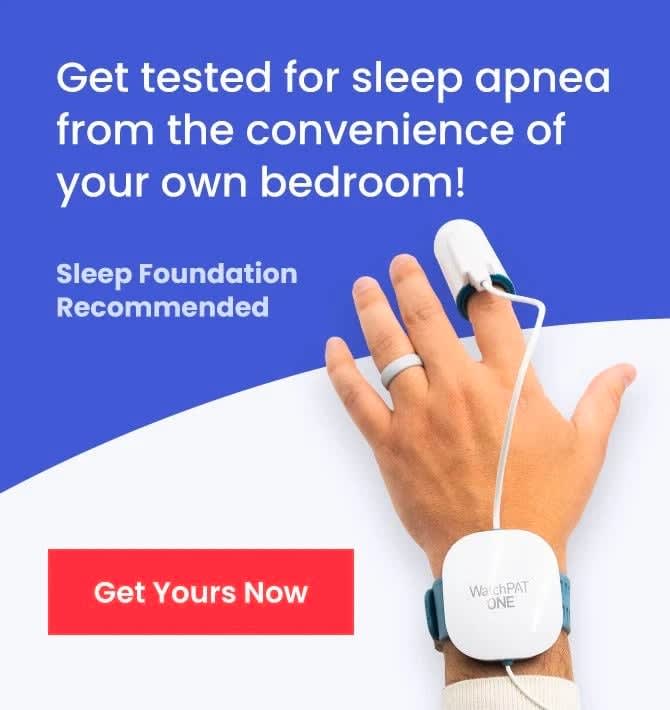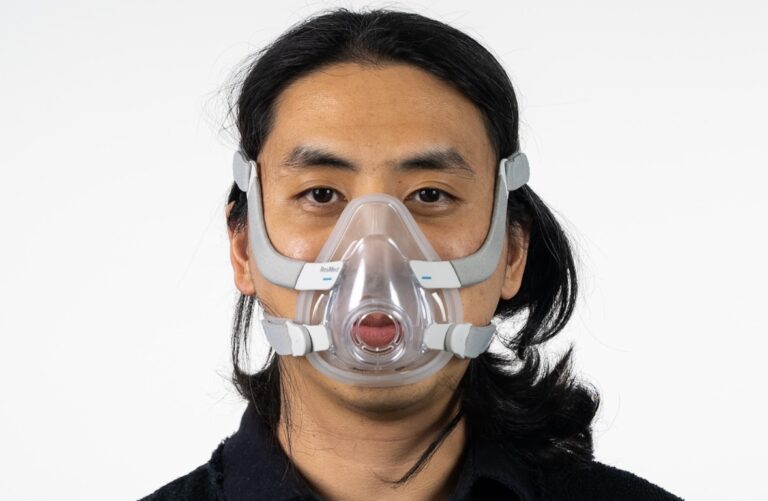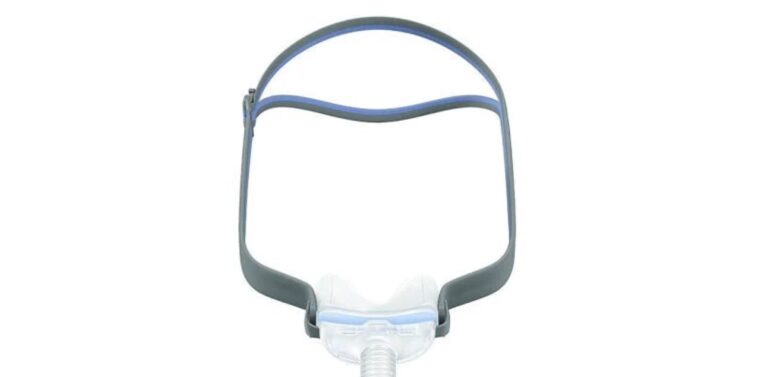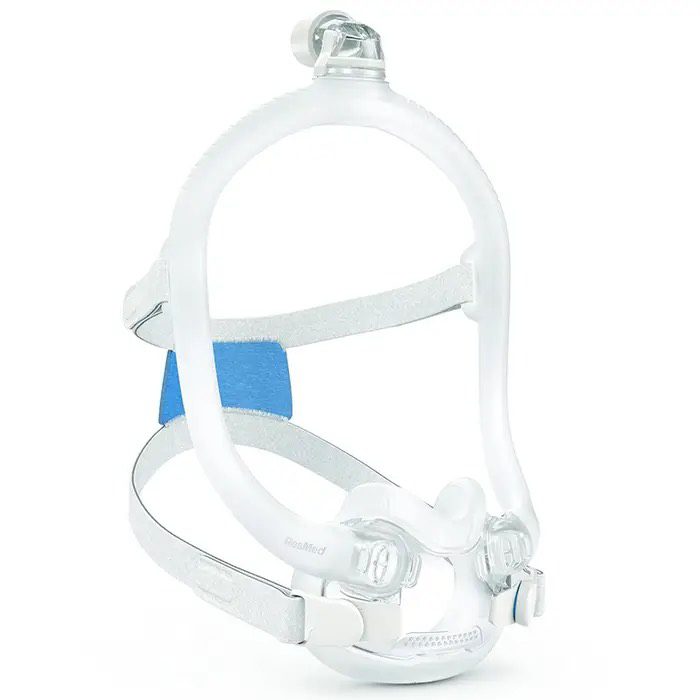When you buy through our links, we may earn a commission. Products or services may be offered by an affiliated entity. Learn more.
The Best CPAP Masks of 2026
If you’re new to CPAP, or just in the market for a new machine or accessories, you might be wondering how to go about choosing the right CPAP mask to suit your needs. The right CPAP mask is key to ensuring your PAP therapy is both effective and comfortable, and that ultimately comes down to fit, breathing style, sleeping position, machine compatibility, and the technical features you need.
Our testing team, which includes respiratory therapists and sleep product experts with decades of experience, reviewed the majority of the CPAP masks available today in an effort to help you pick the best mask for you. In this guide, we’ll introduce you to our top picks of the year and walk you through what you need to know before you buy.
Our Top Picks
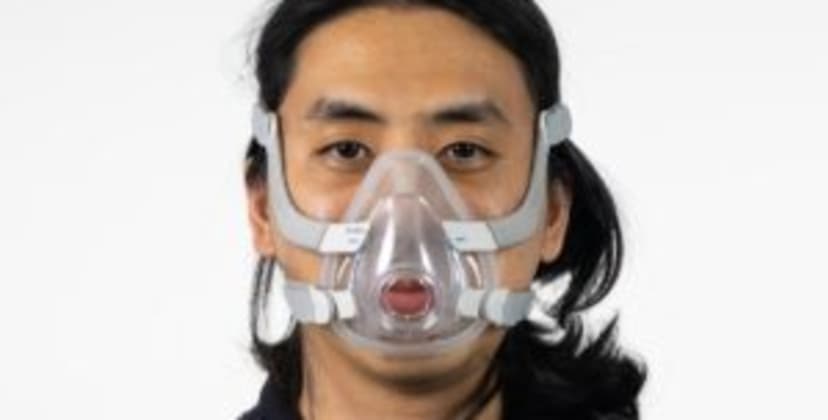
Best Overall
ResMed AirFit F20 Full Face CPAP Mask
Shop Now
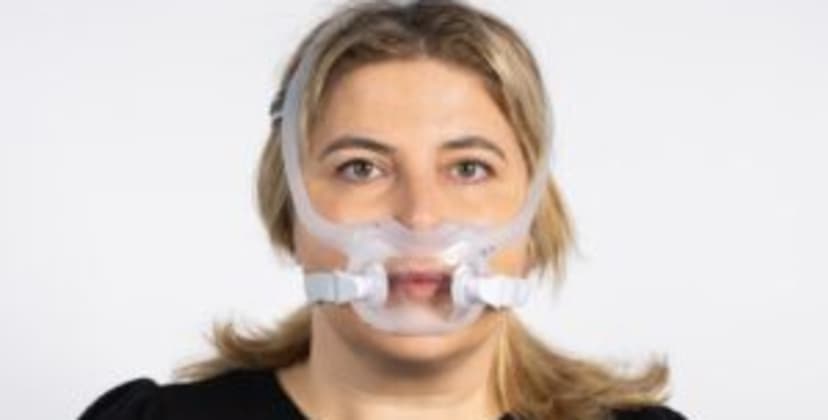
Best for New CPAP Users
Philips Respironics DreamWear Full Face CPAP Mask Fit Pack
Shop Now
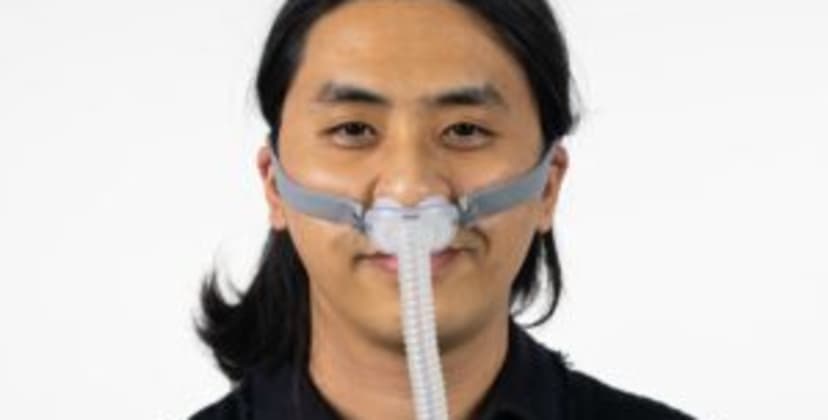
Best Nasal Mask
ResMed AirFit P10 Nasal Pillow CPAP Mask
Shop Now
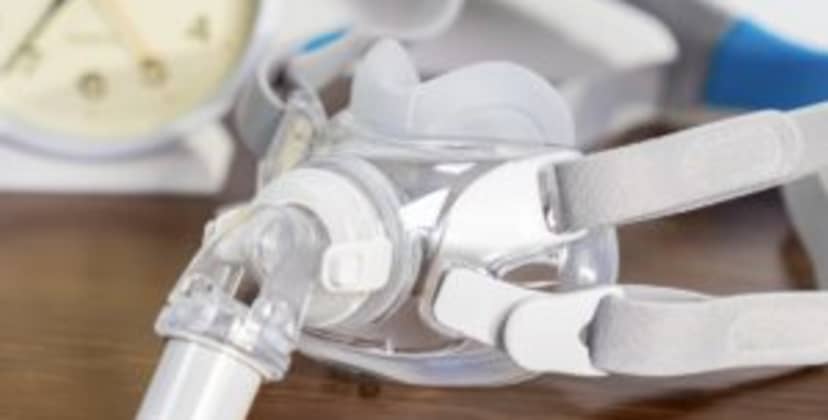
Best Hybrid Mask
ResMed AirFit F30 Full Face CPAP Mask
Shop Now
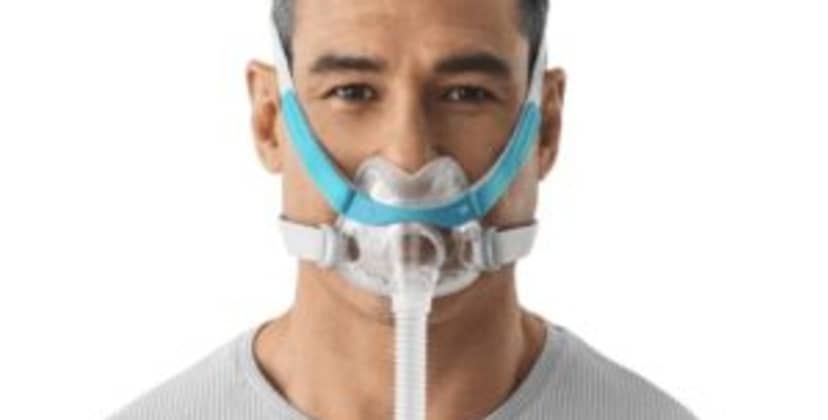
Best Compact Mask
Fisher & Paykel Evora Full Face Compact CPAP Mask Fit Pack
Shop Now
Best Overall
ResMed AirFit F20 Full Face CPAP Mask
Use this link for the most current ResMed discount
Shop at Sleep DoctorA secure full-face mask for people who breathe through their nose and mouth and need high pressure levels during CPAP therapy.
See More Details

Best for New CPAP Users
Philips Respironics DreamWear Full Face CPAP Mask Fit Pack
Use this link for the most current Philips Respironics discount
Shop at Sleep DoctorA full-face mask that includes all sizes with a slim profile, lightweight frame, top-of-head hose link for freedom of movement, and comfortable cushions that won’t cause irritation.
See More Details

Best Nasal Mask
ResMed AirFit P10 Nasal Pillow CPAP Mask
Use this link for the most current ResMed discount
Shop at Sleep DoctorA comfortable nasal pillow CPAP mask that won’t impede your vision, prevent you from wearing glasses, or dislodge when you change sleep positions.
See More Details

Best Hybrid Mask
ResMed AirFit F30 Full Face CPAP Mask
Use this link for the most current ResMed discount
Shop at Sleep DoctorA full-face CPAP mask with a streamlined, low-profile design that ensures steady airflow without blocking your line of sight or feeling excessively bulky.
See More Details

Best Compact Mask
Fisher & Paykel Evora Full Face Compact CPAP Mask Fit Pack
Use this link for the most current Fisher & Paykel discount
Shop at Sleep DoctorA lightweight full-face CPAP mask with gentle, flexible straps and lightweight headgear that comes with three cushion sizes to help you nail down your ideal fit.
See More Details

What Is a CPAP Mask?
A CPAP mask directs pressurized air from your CPAP machine into your airway via your nose, mouth, or both. Their designs vary significantly, but there’s usually a cushion that seals against or over your nose or mouth or pillows that sit in your nostrils, a connector from the mask to your CPAP hose, a headgear for stability, and a frame to hold it all together.
There are five different mask styles, and each has a distinct feel depending on how they seal and cover different parts of your face.
CPAP mask parts need to be replaced regularly to keep your mask hygienic and in good condition. These parts can be purchased separately but are a recurring cost to keep in mind when choosing a mask.
Types of CPAP Masks
There are three common CPAP mask types, as well as two mask types that are used less often since they are designed to address specific issues. No mask type is inherently better than the others, so you should choose the one that works best for your needs.
| Mask Type | Description | Who They’re Best for |
|---|---|---|
| Full-Face Mask | A full face mask delivers air to both your nose and mouth. Most start at the bridge of your nose and end below your lower lip, though some have a lower profile. | Full face masks can generally accommodate higher air pressure settings and are recommended if you breathe through your mouth while asleep. |
| Nasal Mask | Most nasal masks extend from just above the mouth to the bridge of the nose. Nasal cradle models seal beneath the nose for a lower profile. | Nasal masks are a popular choice for side and stomach sleepers, as well as active sleepers and people who find full face masks claustrophobic. |
| Nasal Pillow Mask | Nasal pillow masks feature soft silicone or gel inserts that seal inside the nostrils. They are the lowest-profile CPAP mask type. | Nasal pillow masks have many of the same benefits as nasal masks, in addition to having an even more streamlined and lightweight design. |
| Total Face Mask | A total face mask goes over your entire face, from the chin to the forehead. These masks provide airflow through both the nose and mouth. | These masks may be useful for people who require high air pressure levels or who find it hard to get a good seal with other types of masks. |
| Oral Mask | Oral masks seal around your mouth while leaving your entire nose uncovered. | Oral masks are not commonly used, but they may be recommended if you breathe almost entirely through your mouth. |
How to Choose a CPAP Mask
If you’re in the market for a new CPAP mask, knowing what to look for when shopping can help you find the best mask for your needs.
Doctor’s Orders
When looking for a CPAP mask, start by taking into account any recommendations from your doctor. To effectively treat sleep apnea, you need a mask that is appropriate for your breathing patterns. Your health care team can help guide you to a mask that works well and is also comfortable.
Sleeping Position
Your sleeping position can directly affect the type of CPAP mask that you can comfortably wear. If you sleep on your side, you may struggle with a bulky mask or a mask with headgear that runs along the side of your face. When sleeping on your stomach, you normally need a lower-profile mask. If you are a back sleeper, you may prefer a mask that allows the tubing to connect at the top of the frame.
Fit and Size
Having the right size mask that fits properly creates a seal so that pressurized air from the CPAP machine flows into your airway without leaking. Headgear and straps can also affect how well the mask fits against your face. You may need to try out a few different mask models to find one that has the right size and fit.
Mask Comfort
You want to find a CPAP mask that is comfortable enough to wear for many hours every night. Comfort can depend on a mask’s materials and design, including how it feels against your face, whether it obstructs your vision, and where the straps are positioned. Consider your personal comfort preferences and issues like allergies or sensitive skin when choosing a mask.
Machine and Hose Compatibility
Your CPAP mask must be compatible with the tubing of your CPAP machine, and the tubing and mask have to connect without any air leaks. While most CPAP hoses are designed for universal compatibility, some travel CPAP machines have proprietary tubing that’s only compatible with certain masks from the same brand.
Product Recalls
Recalls involve pulling a product off the market because of a safety concern. For example, in 2022, Philips Respironics issued a product recall for several mask models due to concerns over magnetic clips negatively interacting with implanted medical devices. More recently, ResMed issued a safety notice regarding a similar magnet issue. Speak with your doctor if you’re concerned about the safety of any CPAP mask or machine you’re considering.
Where Can You Buy a CPAP Mask?
You can buy a CPAP mask online or from a brick-and-mortar CPAP equipment supplier. Some sleep clinics may also offer CPAP masks. Since fully-assembled CPAP masks are considered a Class II medical device by the U.S. Food and Drug Administration, they are only available from authorized retailers and require a prescription for purchase. If you buy online, you’ll have to submit your prescription prior to checkout.
Shopping online is convenient and gives you access to a wide selection and competitive pricing. Buying direct from a sleep care specialist can ensure compatibility, and shopping in a retail store lets you see and try on a mask in person before making a purchase.
How Much Does a CPAP Mask Cost?
Most CPAP masks cost between $50 and $200. The price depends on the type of mask and its materials and features. If you have health insurance, your plan may cover some or all of the costs of a CPAP mask.
Do You Need a Prescription to Buy a CPAP Mask?
You need a prescription from a licensed medical provider in order to buy a CPAP mask. Regardless of whether you’re shopping online or in person, we suggest having a copy of your prescription ready.
Although a complete mask requires a prescription, replacement components, such as mask cushions or headgear, can be purchased without a prescription.
Will Insurance Cover the Cost of a CPAP Mask?
Many health insurance plans, including Medicare and Medicaid, provide coverage for CPAP masks under certain conditions. Most online CPAP retailers do not accept insurance, so buying a CPAP mask online often means that you’ll pay out of pocket and apply for reimbursement from your insurance provider. Check with your insurance provider to determine your eligibility for coverage prior to buying.
Insurance plans often require your doctor to provide documentation showing that you need CPAP therapy and are using your device consistently. Even with coverage, you may be responsible for out-of-pocket costs for a deductible or coinsurance.
A few steps may help when trying to get insurance coverage for a CPAP mask:
- Ask your doctor and insurance provider about coverage for CPAP accessories.
- Request that any information about your policy be provided in writing.
- Check with your CPAP mask supplier about whether they send bills directly to your insurance provider.
- Keep receipts and any other paperwork related to your CPAP mask purchase.
- If you have to submit an insurance claim, make sure to provide all the requested documentation.
How We Test
We’re able to choose the best CPAP masks for different needs because of our testing team’s years of experience and in-depth product and patient-care knowledge. Our team has matched hundreds of sleep apnea patients with the CPAP equipment they use on a nightly basis. We also regularly solicit feedback from new and seasoned CPAP users to understand how the machines and accessories work for real people under real-world conditions.
Other CPAP Mask Guides
If you’ve decided on a mask type but would like to explore more options, check out our team’s hand-picked selections for specific types of CPAP masks.
Frequently Asked Questions
How do you clean a CPAP mask?
While cleaning recommendations for CPAP masks may vary depending on the manufacturer and model, general best practices involve a daily wipe down and a deeper cleaning once a week. Specialty CPAP cleaning wipes provide a convenient way to keep a mask clean in between more thorough washings. These wipes are particularly helpful for masks with memory foam cushions that shouldn’t be submerged in water.
Every week, take the mask components apart and wash them with warm water and mild liquid soap. After rinsing off any residual soap, let the components air dry before reassembling them.
Never use harsh cleaners like bleach when washing your CPAP mask. Additionally, avoid CPAP cleaners that use ozone gas or ultraviolet light, as the Food and Drug Administration has issued a warning regarding their safety and efficacy.
How can you prevent a CPAP mask from leaking?
The key to keeping a CPAP mask from leaking air is making sure that it forms a tight (but not too tight) seal with your face. This means that you need a mask that’s the right size as well as appropriate headgear to hold the mask in place.
If you have a nasal mask or a nasal pillow mask, you may need to take steps to keep air from leaking out of your mouth. A common way to prevent mouth leak is to wear a CPAP chin strap that holds your mouth closed during sleep.
Can you buy a CPAP mask online?
You can buy a CPAP mask online. Shopping online lets you browse multiple mask options and easily compare prices from different retailers. When looking for a CPAP mask online, it is helpful to know the specific model of CPAP device you use because you will need to make sure that you purchase a compatible CPAP mask.
How often should you replace a CPAP mask?
General guidelines suggest replacing full-face cushions monthly, nasal cushions or pillows twice a month, frames every three months, and headgear every six months. However, you should replace your mask if it becomes excessively dirty, damaged, or unable to maintain a seal against your face.
We often find that it’s helpful to have a backup CPAP mask available. This lets you continue CPAP therapy if something happens to your primary mask or if you need extra time to clean and dry your mask.
How do you sleep comfortably with a CPAP mask?
You can sleep comfortably with a CPAP mask by finding a high-quality mask that fits well on your face and stays in place when you are in your desired sleeping position. Don’t be surprised if you have to try a few different mask models to find one that doesn’t cause discomfort or irritation.
Even with an ideal mask, it can still take time to get used to wearing a CPAP mask throughout the night. To get acclimated, we suggest wearing your mask at different times when you’re awake, such as when reading or watching TV.
What is the best CPAP mask type for allergies?
A full-face mask is often the best CPAP mask for people who have allergies that cause frequent nasal congestion. Though less commonly prescribed due to low adherence rate and the potential for dry mouth, an oral mask may be an option for a person with both sleep apnea and severe nasal congestion.
CPAP airflow can be blocked by a stuffy nose, so nasal masks and nasal pillow masks may not be a good fit if you have recurring allergy symptoms. Check with your doctor for mask recommendations and suggestions for any medications that may help with allergies.

Still have questions? Ask our community!
Join our Sleep Care Community — a trusted hub of product specialists, sleep health professionals, and people just like you. Whether you’re searching for the perfect mattress or need expert sleep advice, we’ve got you covered. Get personalized guidance from the experts who know sleep best.



